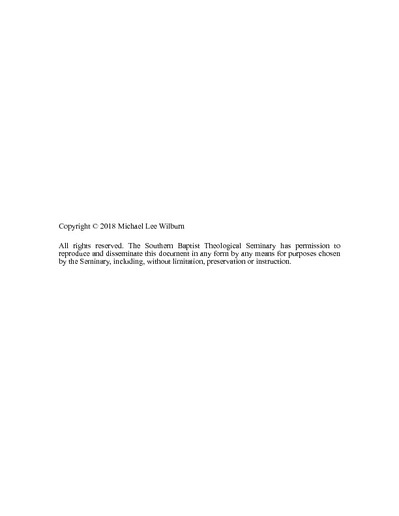Educational Philosophy, Church Proximity, and Academic Standards in Church-Based Theological Education: A Phenomenological Study
Abstract
The history of theological education in North America is a study of the complementary relationship between church and seminary. Theological education between 1980-2017 produced developing partnerships between churches and seminaries as extension centers, teaching sites, and branch campuses. In a select number of instances, a local church began a seminary under the church's influence and on the church's property. This study investigated these institutions of church-based theological education (CBTE) as a model of theological education and as a movement of institutions from 1980-2017.
This qualitative phenomenological research study explored the educational philosophy, church proximity, and academic standards in CBTE. For the purpose of this study, educational philosophy was narrowly classified as a classical, vocational, confessional, or missional model. Church proximity was measured by the closeness of the doctrinal statement, financial support, and institutional relationship. Academic standards were determined by submission to academic accreditation standards or recognition among similar theological education institutions.
An expert panel assisted by reviewing an interview protocol from which 35 interviews were conducted. The 35 interviewees represented all 24 CBTE institutions qualifying for the study. Twenty-four interviewees were senior-level administrators representing the institution. Eleven additional interviews provided a historical perspective from a founding pastor, president, or administrator where accessible. Each interviewee completed a preliminary questionnaire related to educational philosophy prior to a semi-structured interview.
The findings include individualized institution-by-institution profiles and aggregate views regarding educational philosophy, church proximity, and academic standards among CBTE institutions. The research study concludes with an analysis of results and implications for CBTE including specific areas of strength, weakness, opportunity, and threat.

